This image is a stereographic reprojection of an old panorama from 2008. I shot the original panorama exactly 6 years ago. And today was this years race of the JPMorgan Chase Corporate Challenge in Frankfurt am Main.

This is the blog of the PanoTwins
This image is a stereographic reprojection of an old panorama from 2008. I shot the original panorama exactly 6 years ago. And today was this years race of the JPMorgan Chase Corporate Challenge in Frankfurt am Main.

The Novoflex ASTAT-NEX is usually used to mount any of the different Novoflex adapters to a tripod. However the diameter of the ring fits the Walimex 8mm perfectly. The following images illustrate the mounting with the Sony ILCE-7. I only made a small change to the ASTAT-NEX adapter: I removed a little piece using a hand saw to improve the mounting options. With the small part sawed off I can mount the lens both ways round. Both options allow it to change the aperture and the distance on the lens! Depending on my setup (pole, high pole or table top) I use one or the other option.
I called the first option Reverse in the image series below.
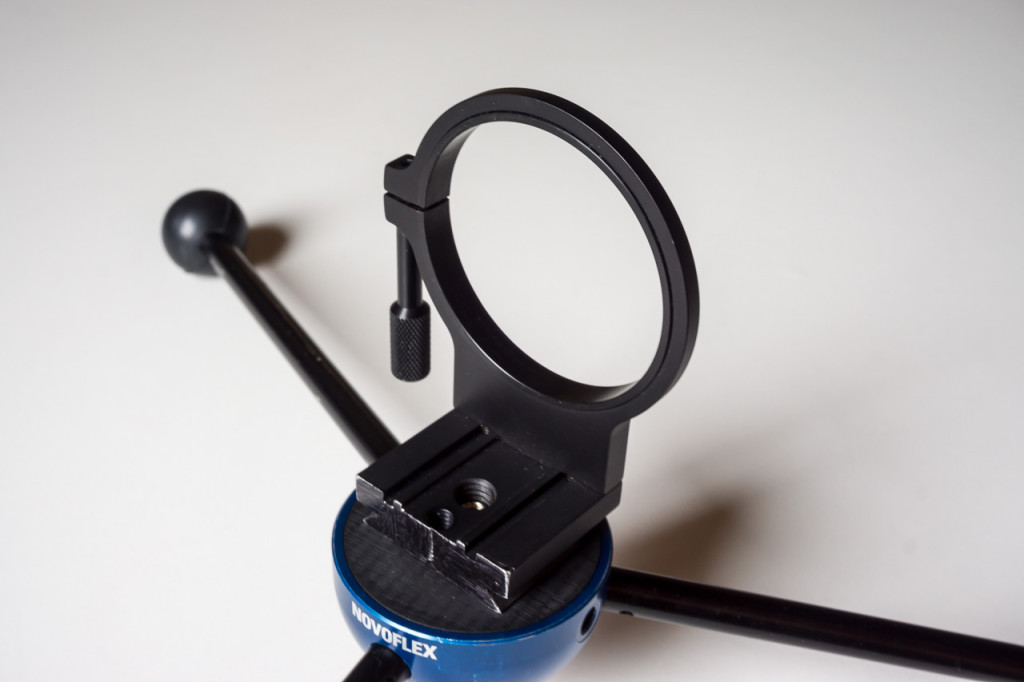
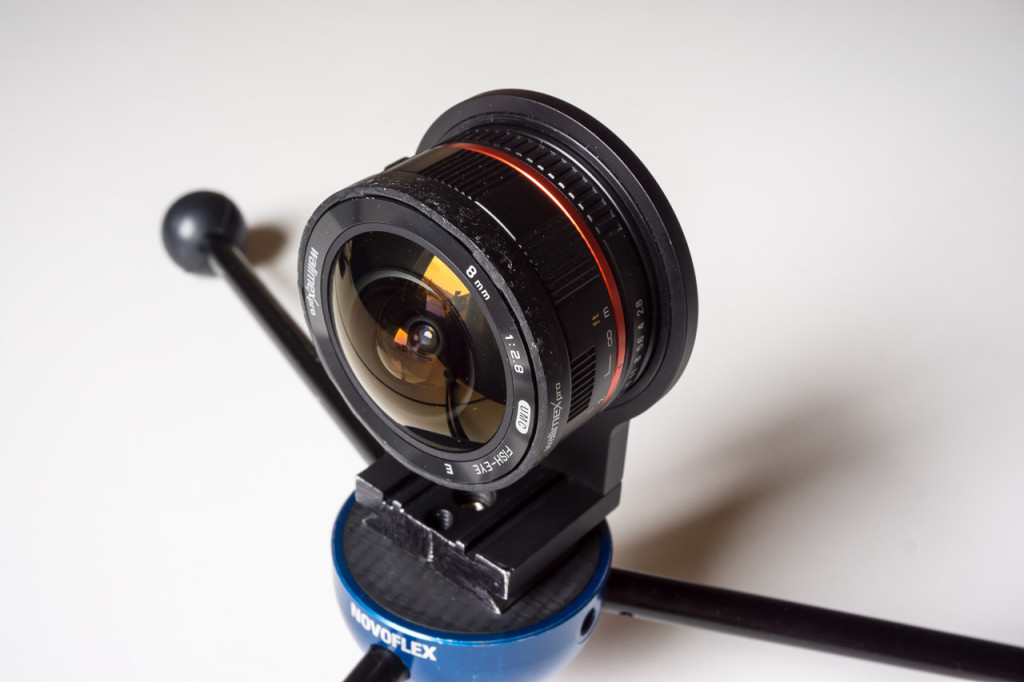
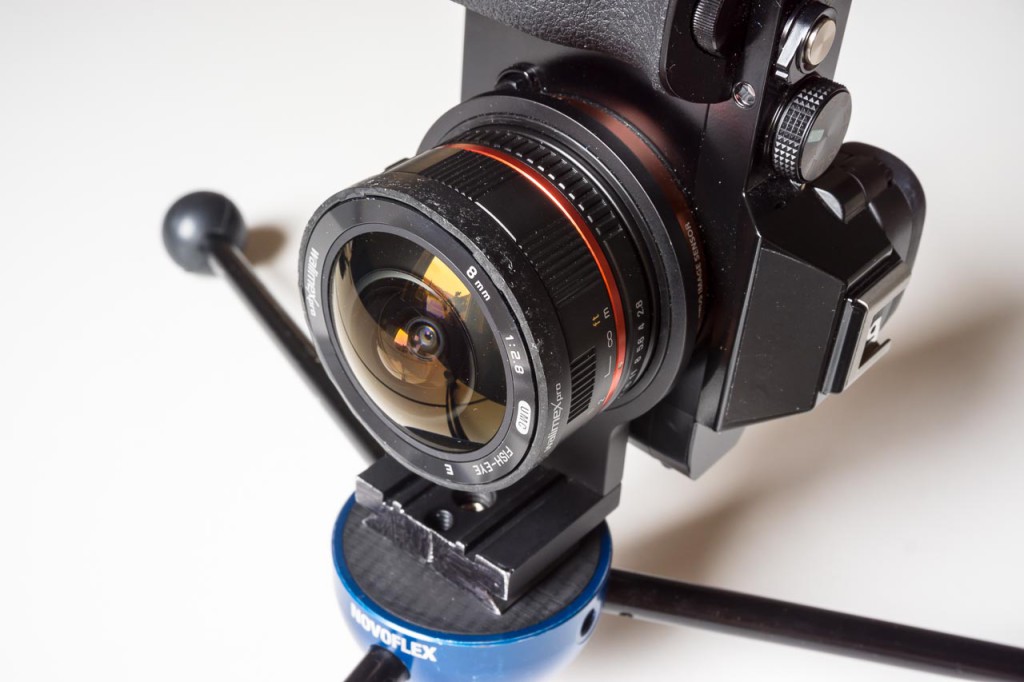
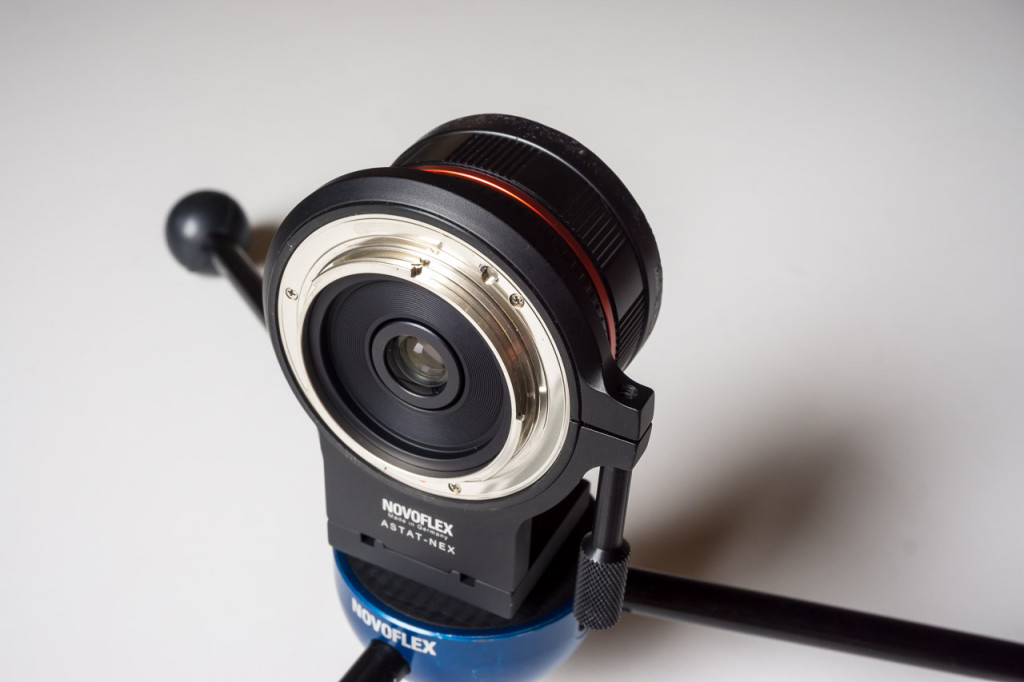
The following images show the normal mounting option you can use when you do not want to saw a small part from your ASTAT-NEX adapter.
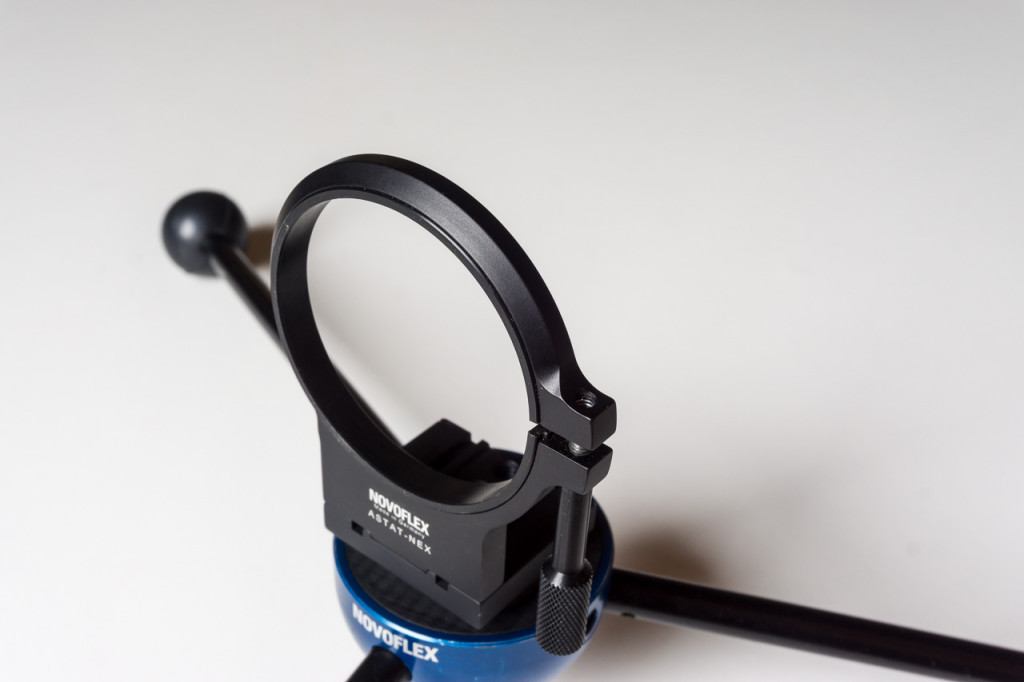
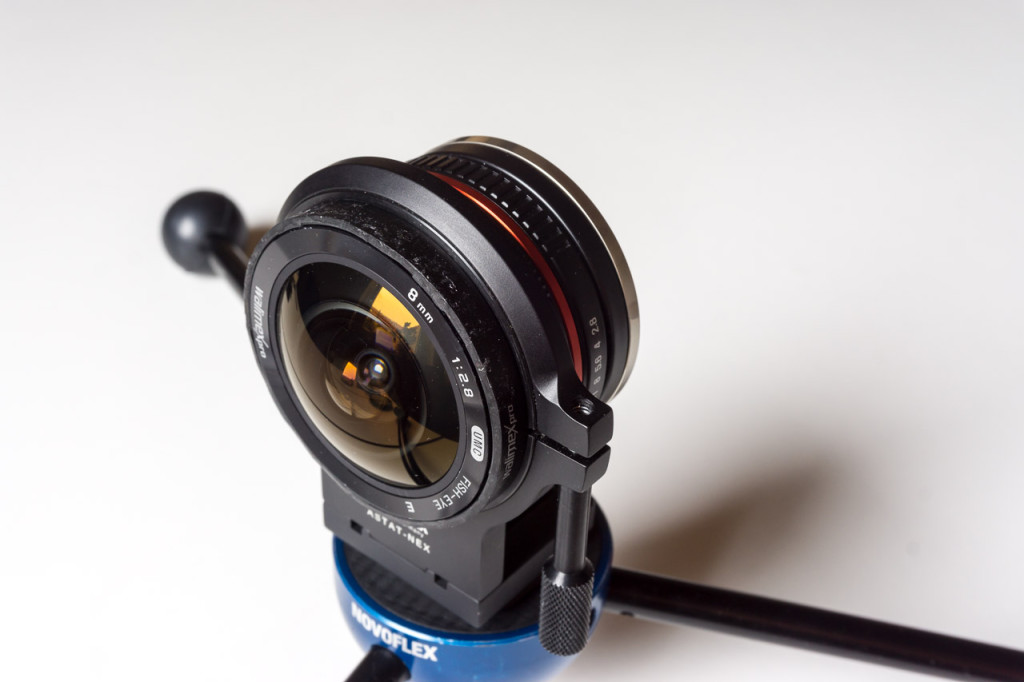
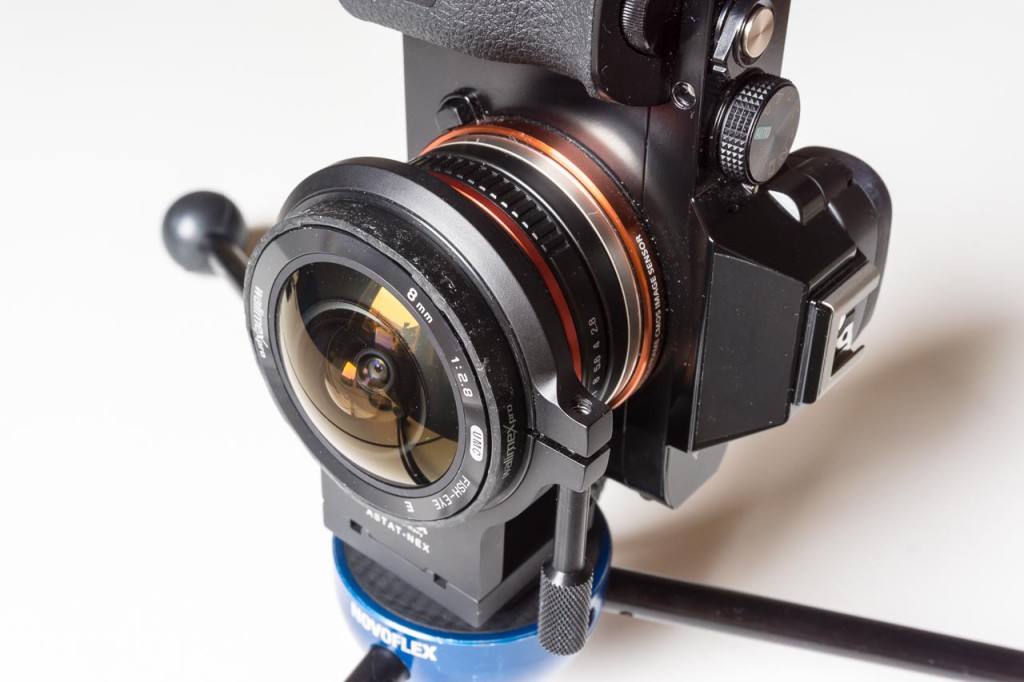
The WWP event 314 has the theme ‘Decade’. I participated with this submission. The event is scheduled to go online on 1/Apr/2014.


One of my favorite panoramas I shot recently is the atrium of the Bavarian Ministry of Justice. Why? Because I managed to capture the almost perfect symmetry in the room. See for yourself here or here. I also reprojected the full spherical panorama to the Mercator view you see in the following image.

What I don’t like about this panorama are the curved lines. It came to my mind that a rectilinear reprojection of the image would result in straight lines. However it is also not possible to reproject the full 360° field of view into one single rectilinear image. But it is possible to split the full 360° into 4×90°. The following image is the result of this technique.

All the straight lines in the panorama are also straight in the real building. The problem is now you get some discontinuities at border between the four cube faces. This is not a real problem in this panorama as the floor tiles just look fine wih the additional discontinuities.
The following image shows the four cube faces reprojected back onto the equirectangular image. You can see here clearly why the floor tiles are not curved in the final Cube Face Panorama. You can also see that the cube faces are not really cube faces, because I moved the individual cubes faces towards the zenith to see less of the floor and more of the ceiling.

The following panorama shows the extracted cube faces in an interactive view:
[pano file=”https://www.panotwins.de/wp-content/panos/MMatern_20140107_1741_Justizpalast_Halle_CubeFaces_MakingOf.xml” preview=”https://www.panotwins.de/wp-content/panos/MMatern_20140107_1741_Justizpalast_Halle_CubeFaces_MakingOf.jpg”]
The upcoming World Wide Panorama (WWP) event is entitled ‘decade’.
In the time frame of a decade even a city can change it’s appearance. So I searched for panoramic images which I shot in 2004 and which were shot at a place which changed over the last ten years. The best example was a image of the Opernplatz, which I took back in 2004 as a cylindrical panorama. And the view of the Opernplatz (which translates to ‘the square of the opera’) indeed changed a lot in the last ten years.
So I went back and stood at the same spot where I stood a decade ago. First I took a spherical panorama with my double monopod construction. Afterwards I did a remake of the original cylindrical panorama. The following image shows the two cylindrical panoramas in a single composite.

 Show on map
Show on map
The original panorama from 2004 is also available on the blog.
Originally this panorama was my submission to the World Wide Panaorama event ‘Decade’. I took it with a monopod mounted on a tripod and took four images with the Walimex 8mm fishe eye lens mounted on the Sony ILCE-7.
Recently I got a question about this panorama I published on Maps Views:
Here I try to explain the problem. In short: I’ve just been too lazy to make an “up” shot (zenith). It is completely missing. The stitching result has not been retouched at all.
When making a horizontal pole shot the “zenith” and “nadir” end up near the equator of the photo sphere. You can see this clearly in the image below, where the red image borders cross. “Zenith” and “nadir” in this case means the direction where the pole is pointing!

When removing all images but one, this looks like the image below. You can clearly see, that the worst part of the fish eye lens ends up in an area of interest. In this case the right side of the river bank.

This image shows the original fish eye shot. You see the bad part of the lens ending up on the right hand side of the river bank.

The solution to this problem is easy: You just need to take an “up” shot. However in this case “up” is again in the direction of the pole! Unfortunately for minimizing the parallax problems I would have needed a different mounting option for my camera.
This panorama was stitched from six images in landscape orientation. The resulting panorama is 10800 x 5585 pixels. Despite the fact that it was taken through a tinted window, I’m quite pleased with the final result.

 Show on map
Show on map
This image shows a panorama which was stitched from eight images in portrait orientation. Due to the high dynamic range of the sensor I only used one exposure and brought back the shadows with Lightroom. The size of the resulting image is 19200 x 6000 pixel.
